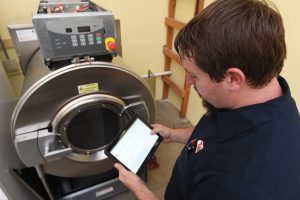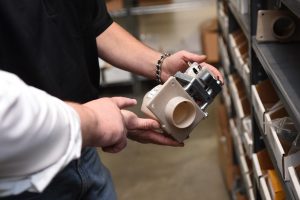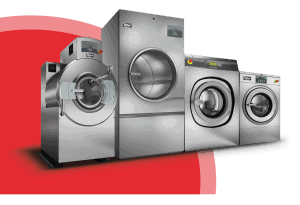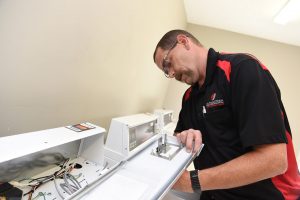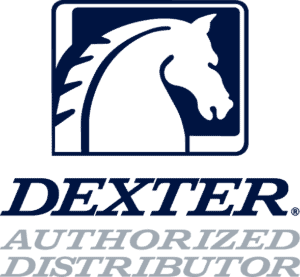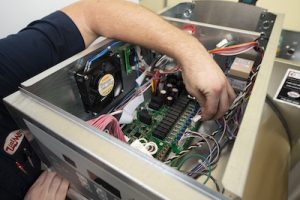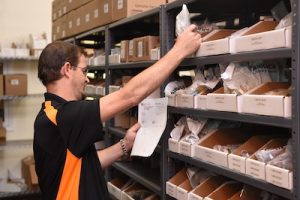The continuous running of washers and dryers is crucial for efficient business operations in the busy worlds of hospitality, healthcare, and other industries that depend on commercial laundry equipment. For this equipment, scheduled maintenance is more than simply a safety precaution—it’s a strategic necessity that can have a big impact on overall success, cost savings, and operating efficiency. Let’s talk about the importance of maintenance for laundry equipment:
Optimizing the Efficiency of Operations
Equipment that is kept up to date runs more smoothly and produces reliable, excellent outcomes. Frequent inspections help find and fix problems including worn-out parts that could impair performance, clogged vents, and malfunctioning belts. By maximizing operational efficiency, one can guarantee that laundry jobs are finished on time, which lowers downtime and increases productivity overall.
Ensuring Compliance and Safety
Commercial washing equipment needs to meet strict safety and hygiene regulations, especially in sectors like healthcare. Frequent maintenance inspections contribute to the equipment’s safe operation and compliance with industry standards. This is especially important in settings where infection control and cleanliness are vital.
Customer Satisfaction and Reputation
Customer happiness is directly impacted by the quality and cleanliness of linens in businesses such as hospitality. Regular maintenance guarantees that laundry equipment continuously produces excellent results, which enhances the visitor experience. A company’s general reputation and client loyalty can be improved by having a reputation for neatness and attention to detail.
Extending the Life of Equipment
As a preventative step, scheduled maintenance assists in locating and addressing possible problems before they become more serious. The longevity of industrial washing equipment can be considerably increased with routine maintenance, including cleaning and lubricating. By doing this, you may safeguard your initial investment and lessen the need for expensive replacements more frequently, both of which improve long-term financial viability.
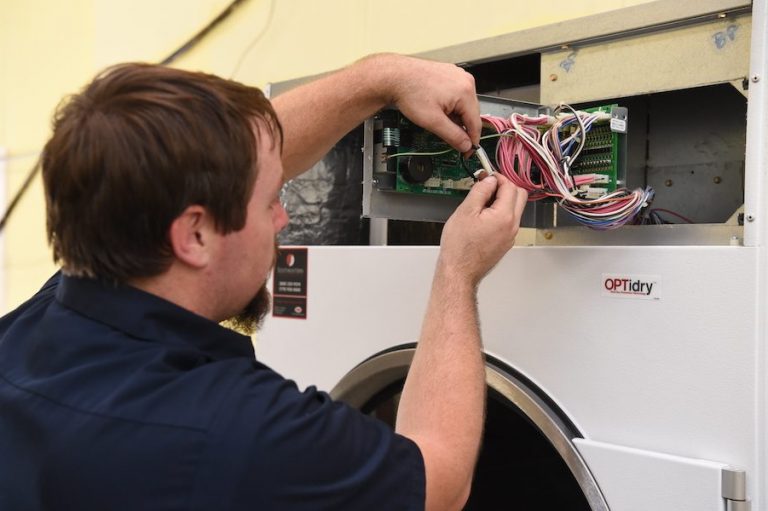
More about the importance of maintenance for laundry equipment
Long-Term Cost Savings
Even while some businesses might be tempted to save money by skipping routine maintenance, the long-term financial advantages of planned maintenance greatly exceed the short-term savings. By taking care of minor concerns during normal maintenance, you can stop them from becoming bigger ones that need costly repairs or equipment replacements. By minimizing unplanned malfunctions, proactive maintenance lowers the need for emergency services and the related expenses.
Enhancing Energy Effectiveness
Energy-intensive commercial laundry equipment is common. Maintaining equipment on a regular basis, such as inspecting insulation and cleaning vents, can increase energy efficiency. Equipment that operates more efficiently uses less energy, which lowers utility costs and has a lesser environmental impact.
